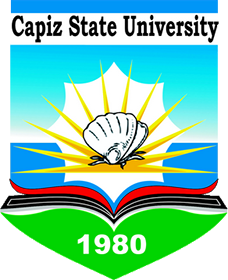Influence of laboratory teaching to students’ academic achievement in science
| dc.contributor.advisor | Abao, Trinidad C. | |
| dc.contributor.author | Martinez, Merry Flor L. | |
| dc.contributor.author | Diego, Edna Mae D. | |
| dc.contributor.author | Nicolas, Judy Ann S. | |
| dc.contributor.author | Aquino, Reshelle L. | |
| dc.date.accessioned | 2024-05-30T06:29:32Z | |
| dc.date.available | 2024-05-30T06:29:32Z | |
| dc.date.issued | 2019-04 | |
| dc.identifier.citation | Martinez, M.F.L., Diego, E.M.D., Nicolas, J.A.S. & Aquino, R.L. (2019). Influence of laboratory teaching to students’ academic achievement in science [Undergraduate thesis, Capiz State University Burias Campus]. CAPSU Institutional Repository | en |
| dc.identifier.uri | https://repository.capsu.edu.ph/handle/123456789/709 | |
| dc.description.abstract | This study was conducted at selected secondary schools of Mambusao, Capiz, during the Academic year 2017-2018 to find out the roles of laboratory teaching on the academic achievement of students in science. The questionnaire was the main instrument used in the study to collect data from the respondents. The results were analyzed using descriptive correlation statistics and were interpreted using frequency counts, mean, percentages, t-test, ANOVA, and Pearson r. Results of the study showed that the majority of the respondents were females, enrolled in private schools, most parents' educational attainment was college graduates, and with a monthly family income of 10,000 and below. The scientific attitudes developed by the respondents were honesty, curiosity, patience, skeptical thinking, open-mindedness, organization, accuracy, retention of facts, and resourcefulness. The scientific skills developed by the respondents to solve problems through laboratory activities were measuring, classifying, experimenting, applying results, critical thinking, creative thinking, reflective thinking, and drawing conclusions. Observing the scientific skill found to be highly developed by the respondents. Most of the respondents' level of academic achievement was outstanding. Furthermore, the results revealed no significant difference in the scientific attitudes and skills developed by the respondents when grouped according to sex, parents' educational attainment, and monthly family income. However, there were significant differences among the respondents' scientific attitudes and skills and the type of school they came from. Scientific attitudes and scientific skills have no significant relation to the level of students’ academic achievement. | en |
| dc.language.iso | en | en |
| dc.publisher | Burias Campus, Capiz State University | en |
| dc.subject | Laboratory teaching | en |
| dc.subject | Academic achievement | en |
| dc.subject | Science education | en |
| dc.subject | Scientific attitudes and skills | en |
| dc.subject.lcsh | Academic achievement--Testing | en |
| dc.subject.lcsh | High school students--Education | en |
| dc.subject.lcsh | Academic achievement--Evaluation | en |
| dc.title | Influence of laboratory teaching to students’ academic achievement in science | en |
| dc.type | Thesis | en |
| dc.contributor.chair | Abao, Trinidad C. | |
| dc.contributor.committeemember | Lozada, Ma. Venus B. | |
| dc.contributor.committeemember | Pimentel, Stephanie S. | |
| thesis.degree.discipline | Biological Sciences | en |
| thesis.degree.grantor | Capiz State University Burias Campus | en |
| thesis.degree.level | Undergraduate | en |
| thesis.degree.name | Bachelor of Secondary Education | en |
| thesis.degree.department | College of Education | en |
Files in this item
This item appears in the following Collection(s)
-
Undergraduate Theses [467]

